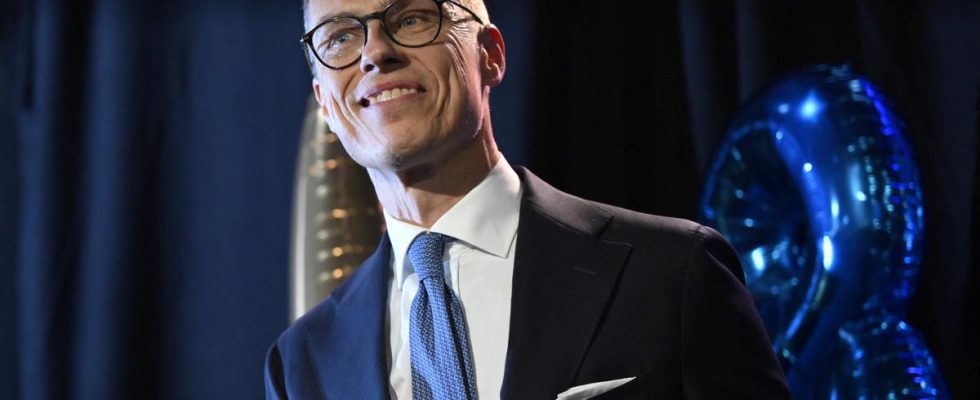After the polling stations closed at 8 p.m., the provisional results gave 52.7% of the votes to the former conservative prime minister against 47.3% to his environmentalist rival Pekka Haavisto who conceded defeat.
Former conservative Prime Minister Alexander Stubb won the presidential election in Finland on Sunday with 51.6% of the vote, in a vote marked by tensions with neighboring Russia since the country joined NATO. “It is absolutely incredible that a country the size of Finland can organize such fair and honest elections in this security policy context”he congratulated himself in front of his supporters, after stopping by to greet his rival Pekka Haavisto on his election night.
Endowed with limited powers compared to the Prime Minister, the Finnish head of state, elected for six years, directs the country’s foreign policy in close cooperation with the government. He is also supreme commander of the armed forces. A notable role which has become even more important due to geopolitical developments in Europe and the entry into NATO of Finland, which shares 1,340 kilometers of border with Russia.
Read alsoThe Russian city of Vyborg, so close and now so far from Finland
“It’s war in Europe and Gaza. It is important for the President of Finland to keep a cool head and strive to maintain peace here and work for peace elsewhere., Alexander Stubb, 55, told public television Yle. The final results credit him with 51.6% of the vote, compared to 48.4% for Mr. Haavisto, former Minister of Foreign Affairs and member of the Greens, who ran as an independent. 70.7% of some 4.3 million voters came to vote in this second round.
The new president is due to take office on March 1. Finland, which repelled a Soviet invasion in the winter of 1939-40, for decades avoided joining NATO for fear of antagonizing its giant neighbor and remained neutral throughout the Cold War. But their relations have deteriorated considerably since February 2022, and the Russian offensive in Ukraine led Finland, worried about its security, to join NATO in April 2023, to the great displeasure of Moscow which promised to respond with of the “countermeasures”.
At the end of August, Finland faced an influx of migrants on its eastern border, accusing Moscow of orchestrating a migration crisis on its doorstep. Helsinki closed its border with its neighbor in November, a measure supported by all the candidates.
Strengthening sanctions
“The international political situation is very difficult for us at the moment and I think we really need a president who can work with the different political parties and who can negotiate”, explained to AFP a voter, Maarit Tarkiainen, a 46-year-old doctor. Alexander Stubb, who has always been in favor of his country’s entry into NATO, is in favor of strengthening sanctions against Russia.
“The very strong support for Ukraine will absolutely continue. And Russia is going to appear on the agenda one way or another, in addition to the war., told AFP Hanna Ojanen, director of politics research at the University of Tampere. The major difference between the two candidates, both liberals, came down to the question of the storage and transport of nuclear weapons in Finland.
For Alexander Stubb, his country must not exclude “no part” of NATO’s nuclear deterrence policy. In 2022, the outgoing president, Sauli Niinistö, elected in 2012 and reputed to be the current European leader to have spoken most regularly with Vladimir Putin, contacted him directly to announce the decision to join NATO . “I want (the next president) to be as good as his predecessor”judged a resident of the capital, Joakim Björnström, 36 years old.
For Hanna Ojanen, the international experience of Alexander Stubb, who was an MEP and Minister of Foreign Affairs during his career, is an asset. “In many ways he will be experienced and competent and I think he will be able to manage both multilateral cooperation and bilateral relations, which is necessary, and he will probably also understand the general picture of foreign policy and of security”she noted.
His colleague, Theodora Helimaki, a political science researcher at the University of Helsinki, believes that his extroverted personality and his address book could make him “a president of a somewhat new type”.
” data-script=”https://static.lefigaro.fr/widget-video/short-ttl/video/index.js” >

